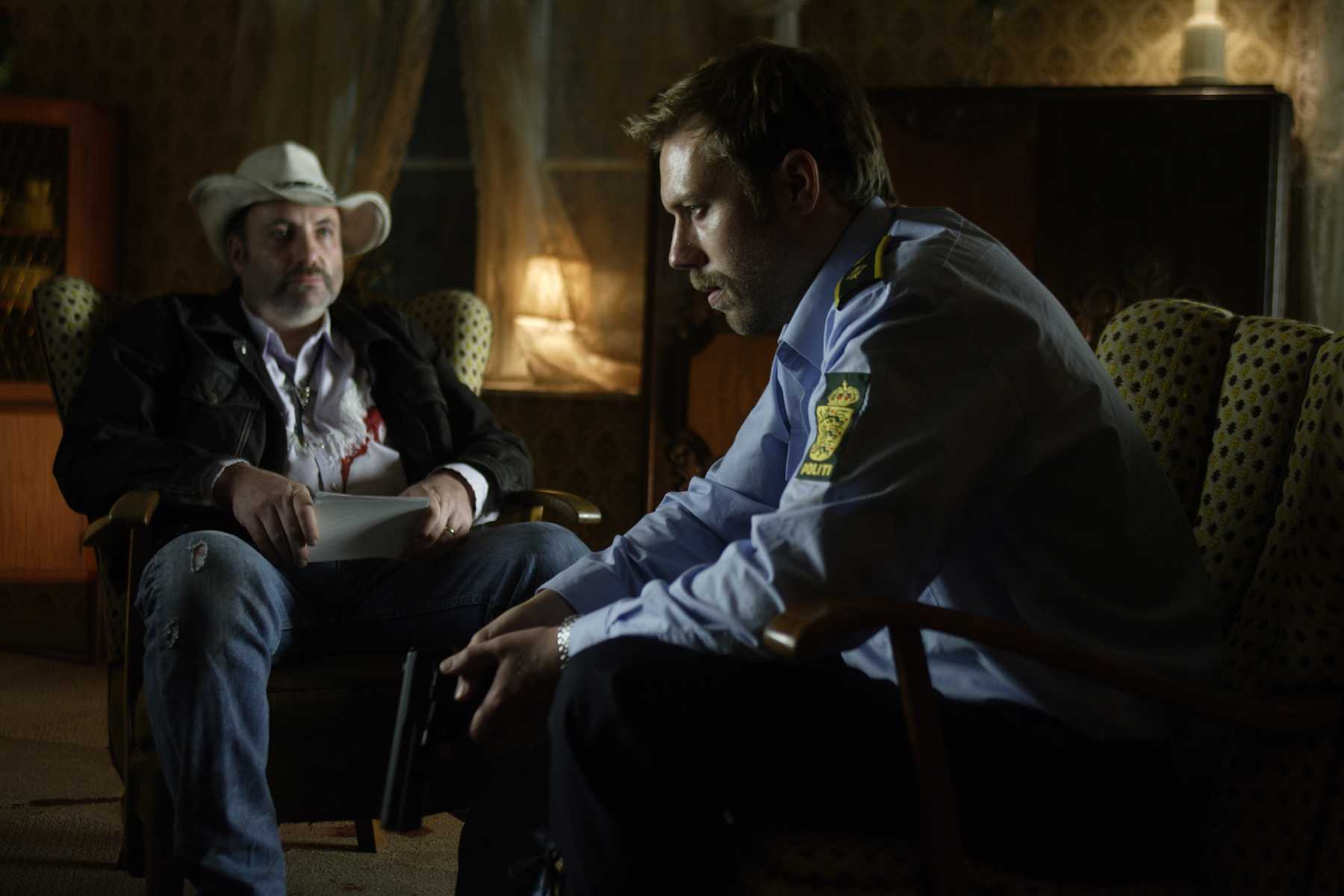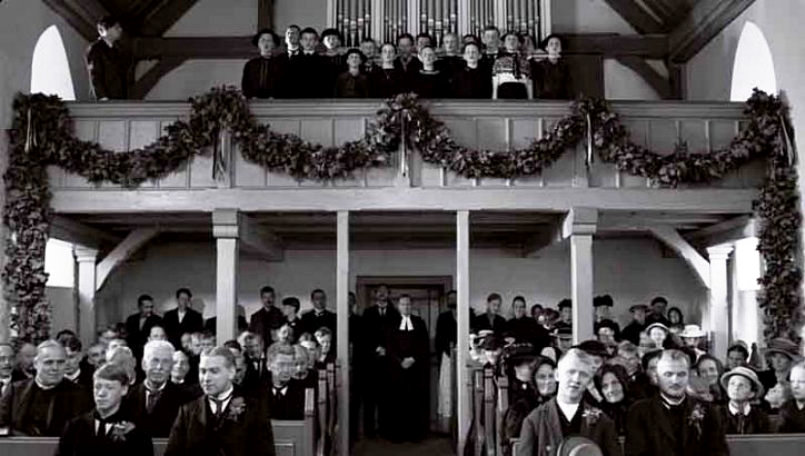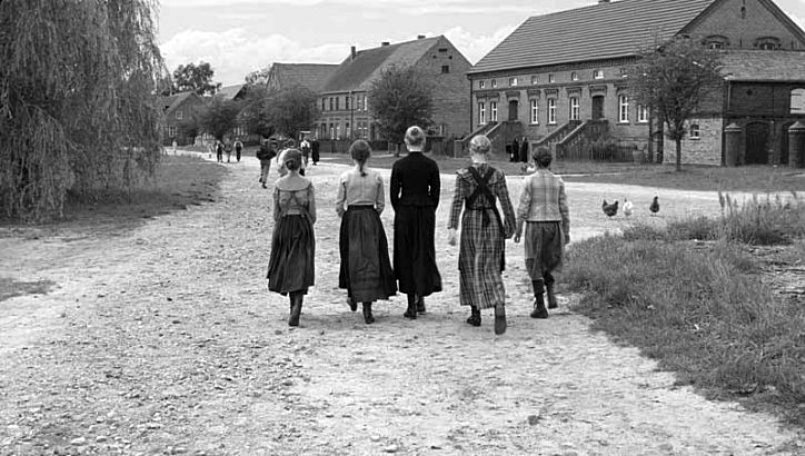
Well, David Lynch…not so much. (I presume the reviewer was thinking of Twin Peaks, but there really aren’t very many Lynchian flourishes here — There’s no Roy Orbison, red lights, flaring matches, or dream logic to be had.) But Terribly Happy definitely wears its Coenesque heart on its sleeve, paying brief homage to three of the Coens’ oeuvre in the first three minutes. The movie begins exactly like No Country for Old Men — a grizzled voiceover talking about crime and the olden ways, over shots of the strangely forbidding Danish countryside. We are then warned, a la Fargo, that this is based on True Events. (In fact, it’s from a novel by Erling Jepsen — Before that, provenance unclear.) And, then we cut to behind a police car on a long stretch of highway, one that pretty quickly conjures reveries of Raising Arizona.
Of all the Coens’ output, tho’, Terribly Happy ultimately feels most like Blood Simple — a sordid tale of small-town crime, seedy bars, and village ne’er-do-wells. (See also: great small-bore, character-driven crime flicks like One False Move and A Simple Plan.) This is not to say that Terribly Happy is derivative, because it isn’t. Rather, the film feels like it tips its hat to its influences before setting off on its own quite unique story. (In fact, Happy seemed unique even tho’ this is the third fish-out-of-water crime story I’ve seen in a row, and despite its reliance on the tried-and-true “new cop in an old village” tradition that includes Hot Fuzz, The Wicker Man, the aforementioned Peaks, and any number of old-school Westerns.)
If it seems like I’m just comparing Terribly Happy to other movies rather than talking about the film itself…well, best not to give away too much. But, in brief: Robert (Jakob Cedergren) is a Copenhagen cop who had a little bit of a breakdown, and has subsequently been dispatched to the sticks to rehabilitate his name. In the tiny hamlet where he ends up, people say “Mojn” like Hawaiians use “Aloha.” The village elders play cards all night long, short-handed. A local woman (Lene Maria Christensen) keeps showing up at the station with new injuries. The entire town seems deeply frightened of her husband Jorgen (Kim Bodnia). A strange little girl (Mathilde Maack) insists on wheeling her squeaky baby carriage around at all hours of the night. And people keep disappearing…
So, yes, there’s something rotten in the State of Denmark — more than a few things actually. And, as you might expect, it is Robert’s task to get to the bottom of it all. But in the Danish lowlands, the bottom can be treacherous, and our White Hat here is, well, not entirely stable, particularly after a beer or six. In fact, he’s the type of fellow who might just draw on his own kitty-cat, especially when it also starts saying “Mojn” back at him. (And, really, can you blame him? It’s only a short step there to “I can haz…“)
Sure, there are a few tells along the way — the last five minutes are telegraphed pretty much from the start. Still, Terribly Happy definitely takes a few jags I was not expecting, and the journey is the reward regardless. It doesn’t have the artsy ambition of The White Ribbon (and I have yet to see the well-regarded A Prophet), but nonetheless, Terribly Happy is my favorite non-English-language film of the year so far. It is, simply put, a solid crime story, well-told. (And if you get a chance, check it out before the inevitable American remake.)



